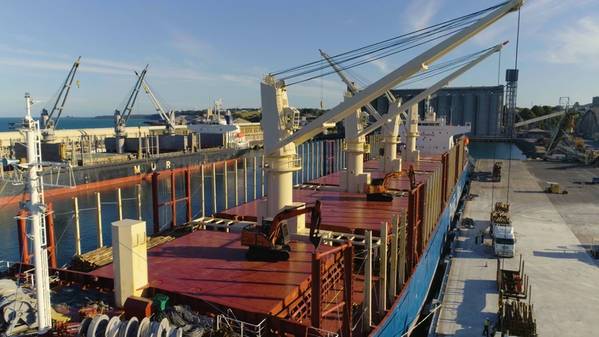
The Baltic Exchange's main sea freight index fell for a second straight week, despite recovering slightly on Friday, as rates for the larger capesize vessel segment weakened.
The Baltic dry index, tracking rates for capesize, panamax and supramax vessels ferrying dry bulk commodities, rose 6 points, or 0.5%, to 1,333.
The index fell about 8.2% this week.
The capesize index dropped for a 12th straight session, falling 13 points, or 0.8%, to 1,527, its lowest since Dec. 14.
The index was down 19.2% this week, its second consecutive weekly decline.
Average daily earnings for capesizes, which typically transport 150,000-tonne cargoes such as iron ore and coal, fell $110 to $12,662.
The panamax index climbed 33 points, or 2%, to 1,662. It rose 1.8% for the week.
Average daily earnings for panamaxes, which usually carry coal or grain cargoes of about 60,000 tonnes to 70,000 tonnes, gained $302 to $14,960.
The supramax index rose 5 points to 1,144, but finished the week 1.8% lower, its first weekly drop in four.
(Reporting by Bharat Govind Gautam in Bengaluru; Editing by Vinay Dwivedi)




